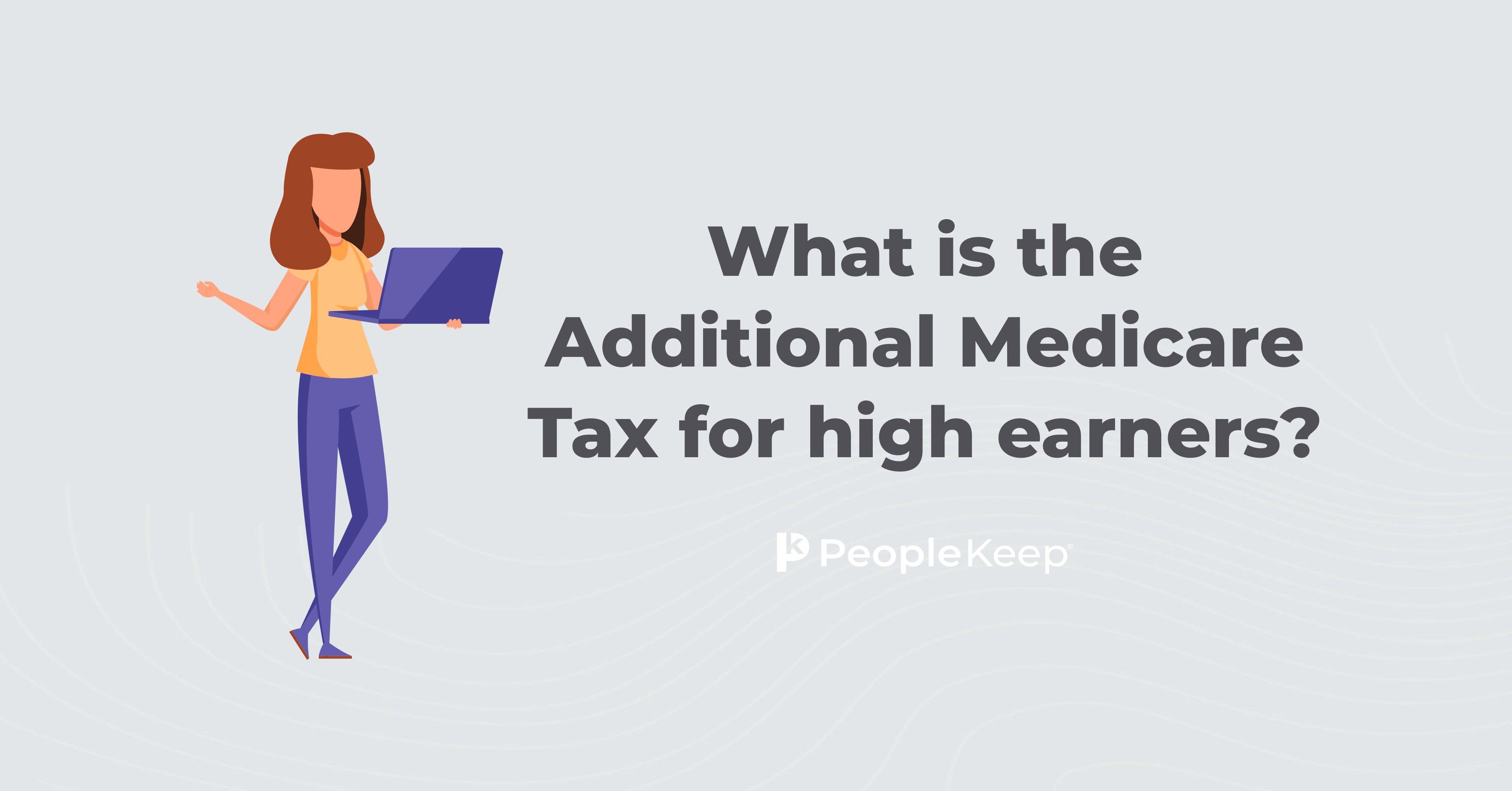Does an HRA work with Medicare?
By Holly Bengfort on October 28, 2025 at 8:00 AM
Medicare is a valuable insurance option for U.S. citizens aged 65 or older and young people with disabilities. As of June 2025, more than 69 million1 Americans have Medicare coverage. Enrollment is rising steadily.
If you have Medicare and work for an employer that offers a health reimbursement arrangement (HRA), you may wonder whether you can use your HRA for Medicare premium reimbursement. An HRA is a cost-effective alternative to traditional group health plan coverage. It's another health benefit that can help older people and those with disabilities get their medical care expenses reimbursed by their employer.
You can use HRAs and Medicare together. But combining the two can get a little tricky.
In this article, we'll break down how it all works by the different types of HRAs and Medicare plans.
In this blog post, you'll learn:
- If you can reimburse Medicare premiums with the individual coverage health reimbursement arrangement (ICHRA).
- If you can reimburse Medicare premiums with the qualified small employer health reimbursement arrangement (QSEHRA).
- If you can reimburse Medicare premiums with the group coverage health reimbursement arrangement (GCHRA).
What types of Medicare are available?
Before we talk about how combining Medicare and HRA benefits works, let's go over each type of Medicare plan in more detail. This is important, as not every type of Medicare works with an HRA.
Medicare Part A
Medicare Part A is hospital insurance. It's considered minimum essential coverage (MEC) by the Affordable Care Act (ACA).
Medicare Part A covers the following expenses2:
- Inpatient hospital care
- Skilled nursing facility care
- Home healthcare
- Hospice care
Medicare Part B
Medicare Part B is medical insurance covering any medically necessary supplies or services and preventive care. It isn't considered MEC unless you also have Part A coverage. Original Medicare includes Parts A and B.
Medicare Part B covers the following services3:
- Provider services
- Home health services
- Ambulance services
- Preventive services
- Therapy services
- Mental health services
- X-rays and lab tests
- Chiropractic care
- Select prescription drugs
Medicare Part C
Medicare Part C4, also known as Medicare Advantage, is a health plan offered through a private insurance company that has a contract with Medicare. Medicare Advantage qualifies as MEC and often includes benefits beyond Medicare Parts A and B.
The most common types of Medicare Advantage plans are:
- Health maintenance organizations (HMOs)
- Preferred provider organizations (PPOs)
- Private fee-for-service (PFFS)
Medicare Part D
Medicare Part D5 is prescription drug coverage. Each Part D plan will have its own complete list of prescriptions it covers, so be sure to check that the ones you need are on it before enrolling.
All Part D plans must cover all drugs available in the following categories:
- HIV/AIDS treatments
- Antidepressants
- Antipsychotic medications
- Anticonvulsive treatments for seizure disorders
- Immunosuppressant drugs
- Anticancer drugs (unless covered by Part B)
- Vaccines (unless covered by Part B)
How does Medicare work with the ICHRA?
Employers can use the individual coverage HRA (ICHRA) to reimburse employees for their Medicare premiums.
Under the ICHRA, eligible employees and their dependents must have a qualifying type of individual health insurance coverage to participate. This includes either Medicare Part A and B together or Part C.
The following table shows which Medicare plans work with the ICHRA for participation and under what conditions:
|
Medicare Part A |
Medicare Part B |
Medicare Part C |
Medicare Part D |
|
|
ICHRA qualified for participation? |
Yes - if enrolled voluntarily and paired with Part B* |
Yes - if combined with Part A** |
Yes |
No - while not considered MEC, you can get your Part D premiums reimbursed through the ICHRA |
|
Can an ICHRA reimburse Medicare premiums? |
Yes, if you have individual health coverage with MEC, such as Parts A and B or C |
Yes, if you have individual health coverage with MEC, such as Parts A and B or C |
Yes, if you have individual health coverage with MEC, such as Parts A and B or C |
Yes, if you have individual health coverage with MEC, such as Parts A and B or C |
An ICHRA can also reimburse employees for Medicare supplemental health insurance, or Medigap.
*If you're enrolled automatically in Medicare Part A through Social Security, then the Internal Revenue Code (IRC) doesn't consider the payroll tax paid for Medicare Part A to be a medical expense. Therefore, it isn't reimbursable through the ICHRA.
**According to the ICHRA Final Rules, you must also have Parts A and B together to meet MEC requirements6. Parts A or B alone won’t satisfy federal requirements.
How does Medicare work with the QSEHRA?
Employers can also reimburse monthly payments for Medicare through the qualified small employer HRA (QSEHRA). The QSEHRA is for employers with fewer than 50 full-time equivalent employees (FTEs). They can offer this HRA to reimburse their employees for eligible expenses and insurance premiums.
All full-time employees are automatically eligible for the QSEHRA. However, they must have an insurance plan that qualifies as MEC to be eligible for QSEHRA reimbursements. Employers who mistakenly reimburse an employee for medical expenses without MEC must report their employee’s allowance as taxable income on their W-2.
The following table shows which Medicare plans work with the QSEHRA and under what conditions:
|
|
Medicare Part A |
Medicare Part B |
Medicare Part C |
Medicare Part D |
|
QSEHRA qualified? |
Yes - if enrolled voluntarily* |
Yes - if combined with Part A or C** |
Yes |
Yes - if employees have MEC |
*If you're enrolled automatically in Medicare Part A through Social Security, then the Internal Revenue Code (IRC) doesn't consider the payroll tax paid for Medicare Part A to be a medical expense. Therefore, it isn't reimbursable through the QSEHRA.
**Part A can work on its own, but not Part B—if you have Part B, you must also have Part A or C to meet MEC requirements.
How does Medicare work with a GCHRA or EBHRA?
The group coverage HRA (GCHRA) and the excepted benefit HRA (EBHRA) are the only HRA types that don’t work with any Medicare insurance plans. Since Medicare is an individual insurance option, and the GCHRA and EBHRA only work with a traditional group health plan, the two aren't compatible.
Luckily, if your employer offers a GCHRA with PeopleKeep, that means they're also offering a group health policy that will cover many of the same healthcare needs you would get covered through Medicare. Employers can then reimburse out-of-pocket medical expenses, deductibles, coinsurance, and copayments with a GCHRA.
Are HRAs subject to Medicare Secondary Payer (MSP) requirements?
Employers must follow specific rules when coordinating coverage between Medicare and HRAs, including complying with Medicare Secondary Payer (MSP) reporting requirements. MSP7 refers to situations where Medicare isn’t the primary payer. Another insurer or organization must pay first before Medicare covers any remaining costs.
If your employees have Medicare and an HRA, it's crucial to report them properly.
Read our blog post to learn how you can coordinate these two benefits for your employees.
Conclusion
If your employees use a Medicare plan, the individual coverage HRA (ICHRA) and qualified small employer HRA (QSEHRA) are your go-to HRAs to work with your employees' health insurance coverage. You can reimburse their health insurance premiums as well as qualifying medical expenses to lower their out-of-pocket healthcare expenses even further.
This blog article was originally published on March 24, 2021. It was last updated on October 28, 2025.
- Data.CMS.gov - Medicare Monthly Enrollment
- Medicare.gov - What Part A covers
- Medicare.gov - What Part B covers
- Medicare Interactive - Medicare Advantage basics
- Medicare Interactive - Part D basics
- Federal Register - Health Reimbursement Arrangements and Other Account-Based Group Health Plans
- CMS.gov - Medicare Secondary Payer
Check out more resources
See these related articles

Individual coverage HRAs (ICHRA) and Medicare
Learn how Individual Coverage HRAs (ICHRA) work with Medicare. Discover eligibility, rules, and how ICHRAs can benefit Medicare-eligible employees.

Are HRAs subject to Medicare Secondary Payer (MSP) requirements?
If you have employees that are on Medicare and participating in an HRA, you need to make sure you're coordinating and reporting the two benefits correctly.

What is the Additional Medicare Tax for high earners?
In this article, we'll go over how the Additional Medicare Tax works, how it differs from Medicare taxes, and the income levels it applies to.


